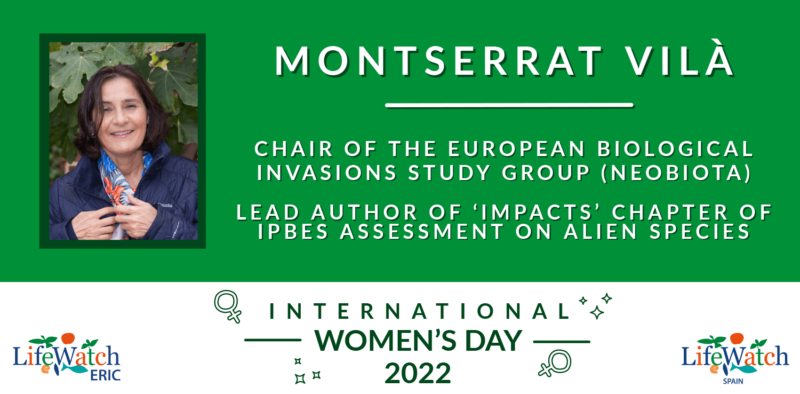
For International Women’s Day 2022, we at LifeWatch ERIC are putting eight scientists in the spotlight. Each of the LifeWatch ERIC member states has proposed a figure who has broken boundaries over the course of her lifetime, and is an inspiration to younger generations looking to pursue a career in STEM.
As we explored in the podcast we recorded for The International Day of Women and Girls in Science, women are still underrepresented in various scientific fields, such as engineering, computer science and AI. Additionally, scientific research in general is not only unbalanced in terms of composition (33% female) but also in terms of hierarchy, with only 12% of national science academy members being women, who are disproportionately overlooked when it comes to promotion and grants.
The women at the centre of our campaign are very diverse, hailing from a range of countries and time periods, but they all have one thing in common: overcoming the odds in order to contribute to scientific improvement. We want to draw attention to just a fraction of the women who have defied the cultural barriers pitted against them to bring good to the world, and bring recognition where they might have been overlooked.
Montserrat Vilà Planella, born in Figueres (Girona), is a research professor at the Doñana Biological Station (EBD-CSIC). She carried out a PhD in Biology from the Autonomous University of Barcelona, where she was a lecturer in Ecology and scientific secretary of CREAF, followed by a post-doctorate at the University of California at Berkeley. Her research work mainly focuses on the ecology of biological invasions and their application to ecosystem conservation, for which she was given the most prestigious award in Spain in the field of scientific research, and with which she and her team have developed Impact Risk Assessments for major invaders in Europe.
Vilà is a member of the IUCN Invasive Species Specialist Group, chair of NEOBIOTA, and member of the Scientific Forum on the European Regulation of Invasive Alien Species. With more than 200 publications in SCI scientific journals and more than 40 book chapters, in the last 8 years she has been highlighted by Thomson-Reuters as among the top 1% of the world’s most cited researchers in the field of Ecology and Environment. She is associate editor of the journals Biological Invasions, NeoBiota, Ecology Letters and Bioscience, serving on several project evaluation panels. She was previously deputy director at EBD-CSIC, and has coordinated proposal evaluations in the area of Plant Biology, Animal Biology and Ecology at the AEI. She is also a lead author on the Impacts chapter of the IPBES Invasive Alien Species Assessment.
More recently, during the pandemic, she has reflected on the evolution of COVID-19 and found out that the epidemiology of human pathogens and the biology of invasions by plants and animals share many mechanisms, phenomena and challenges, but also potential solutions. She has brought her ideas to a synthesis study published in BioScience, arguing for an interdisciplinary perspective to bring together research on infectious diseases and non-native species invasion, in order to better understand current and future threats in biosecurity, and to improve prevention and response measures.